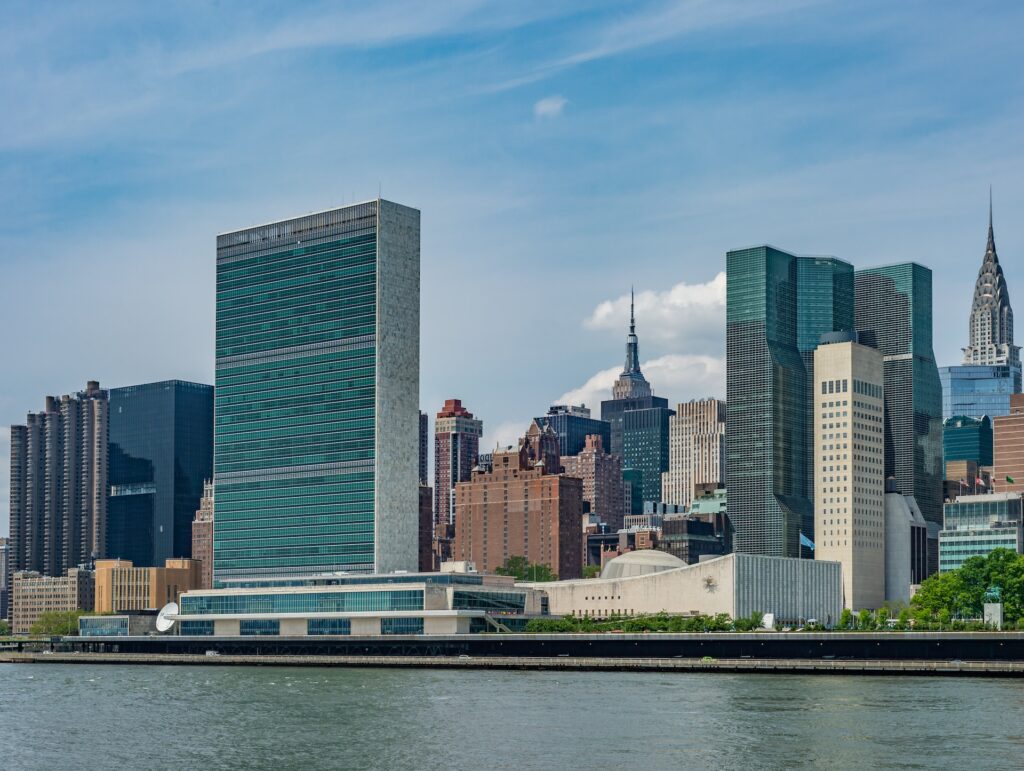While the Estonian foreign ministry is planning to close its consulate general in San Francisco and the historic, monumentally important consulate general in New York City – under the pretext of cost cutting – the ministry is actually spending USD30,000 a month on the residence of the Estonian ambassador to the United Nations.
After the news broke that Estonia was closing its consulates in New York City and San Francisco, multiple sources approached Estonian World, informing us of the irresponsible spending on the UN ambassador’s residence, while the closure of the consulates – heavily protested against at that – was planned under the pretext of saving the foreign ministry money, despite the cost of maintaining the NYC consulate premises being nearly free as it is physically part of the existing UN permanent mission, which the country already owns.
Mihkel Tamm, the chief communications officer at the Estonian foreign ministry, confirmed to Estonian World that the ministry is renting a residence in New York City for the country’s UN ambassador, Rein Tammsaar, for USD30,000 a month – a whopping USD360,000 a year.
“Included in this are the rental of a furnished representation space and the residence’s utility bills – including the garage,” Tamm said. “The high cost of the residence is influenced by the high rental prices in New York, and also the special conditions, set by the foreign ministry for the location, security and an audience room where high-level guests can be hosted and diplomatic audiences can be held.”

Tammsaar became the Estonian ambassador – or the permanent representative, as the position is officially titled – to the UN in August 2022. Before him, Sven Jürgenson served as the ambassador from 2015 to 2022. The rent for Jürgenson’s apartment in New York City during his tenure – which included both the campaign for the UN Security Council and Estonia’s subsequent term on it – was only USD7,500.
A residence would’ve made more sense during the UNSC tenure
“It’s important to distinct that ambassador Jürgenson (and previous ambassadors) had a living space, not a residence. From the summer of 2022, the ambassador dwells in a residence, which in its essence is completely different and has expectations that are not comparable with a living space,” Tamm said.
“A residence, in addition to a living space, is also largely a working space where to hold meetings and audiences. It’s a representation of the whole Estonia that has to be distinguished and this also means clear financial efforts by the state.”
However, Jürgenson’s tenure at the UN involved Estonia’s two-year membership on the UN Security Council from 2020 to 2021. According to a senior diplomat, who spoke with Estonian World under the condition of anonymity, it would have made much more sense to have a such a residence during the country’s tenure in the UNSC, rather than after it.
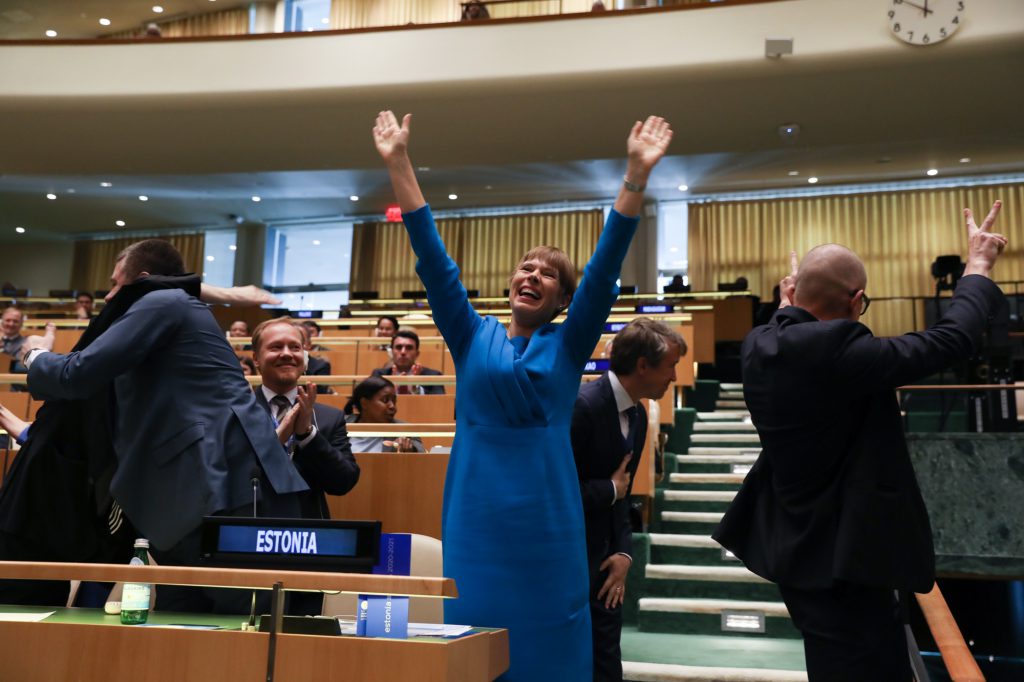
“During the Security Council tenure, a USD30,000 fancy residence would have actually been helpful to the country and delivered a return on the investment,” the source told Estonian World. The diplomat also pointed out that the foreign ministry’s claim that the residency is needed for hosting high-level guests and holding audiences is grossly exaggerated – the Estonian ambassador to the UN rarely hosts any such events.
Ministry: UN is of key importance to the Estonian foreign policy
Additionally, at a time when the eyes of the world were squarely on Estonia, its chief representative to the UN managed to represent the country’s interests successfully without such an overpriced tool at their disposal. It makes no sense that the country is spending that money now, given the state of the economy, the need to cut costs, and the fact that the spotlight of the international community is no longer pointed at Estonia, the source said.
“The consulate costs basically zero, as the space is the same as the UN mission, [closing the Estonian consulate in NYC has] really zero cost saving,” the source told Estonian World. “And the difference between a senior diplomat pay versus a junior one is pennies and a joke. Especially when looking at the USD30,000 residence.” The source here was referring to Estonia’s plan to close the consulates and add additional diplomats to the embassy in Washington, DC.
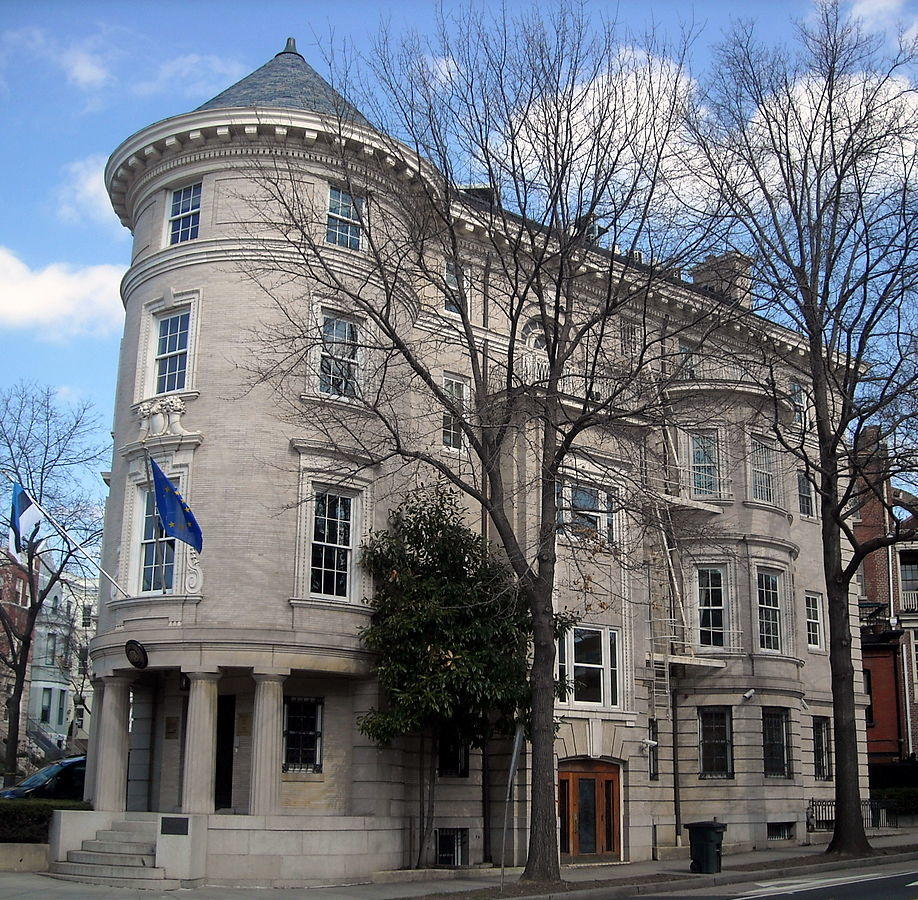
The Estonian foreign ministry did not agree. “The activity at the UN is of key importance to the Estonian foreign policy and we regard it important that Estonia was represented in New York City in a dignified way. In addition to the activites at the UN, the [ambassador’s] residence is used to host the local Estonian community and cultural activities,” Mihkel Tamm said.
According to Tamm, Estonia’s diplomatic activities and ambitions are developing constantly. “Renting a residence in New York was a thought-through decision as we had to guarantee that, after Estonia was a member of the Security Council for two years, we could secure our foreign policy grasp towards the UN, including through a more active communication with the members of the UN,” Tamm noted.
Foreign minister’s decision
“In the conditions of Russian aggression, the role of the UN and our foreign and security policy activities at the UN have become more important, so that we can guarantee a continued international support for Ukraine and our policy; and also to isolate Russia politically. Considering how much our activities at the UN weigh, we have chosen to contribute more to our presence.”
The foreign ministry said the closure of the consulates was a political decision of the incumbent foreign minister, Margus Tsahkna, and also his responsibility.
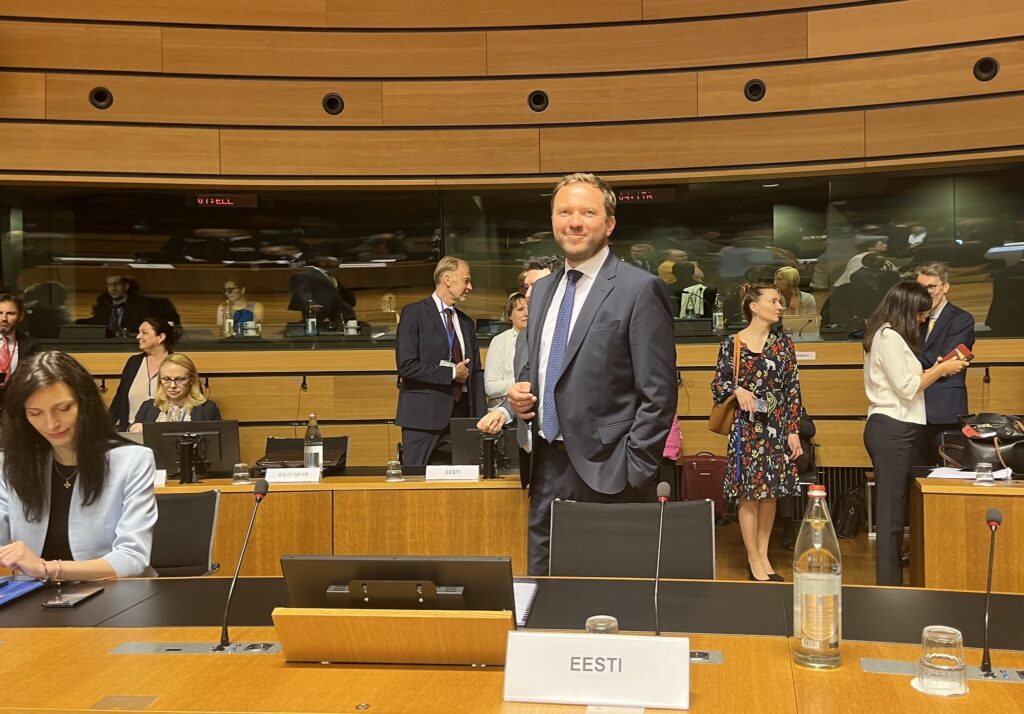
“The closure of both consulates in the US has been a difficult decision that we had to make in the light of complex cost cutting measures. The consulate general in New York City will be closed, but after rearrangements, the foreign ministry is planning to continue offering consular services from New York City at a level as good as possible,” Mihkel Tamm of the foreign ministry said.
The NYC consulate could stay open with little effort
“According to the preliminary plans, the consular services will continue at the same location, offered by a consul who will be hired as a staff member of the Washington, DC, embassy. Whether they’ll be doing it permanently in New York or whether they’ll visit New York from the capital – that’s not decided.”
According to the foreign ministry, the cost of the Estonian consulate general in New York in 2023 is planned to be €578,296 – or USD609,445. That consists of mostly the diplomats’ salaries and some utility bills. The space where the historically important consulate operates is owned by the Republic of Estonia. Considering that the country is essentially wasting USD360,000 on a residence for the ambassador to the UN – a body where not many significant decisions are made – it seems that with little effort, Estonia could actually keep the New York consulate open.
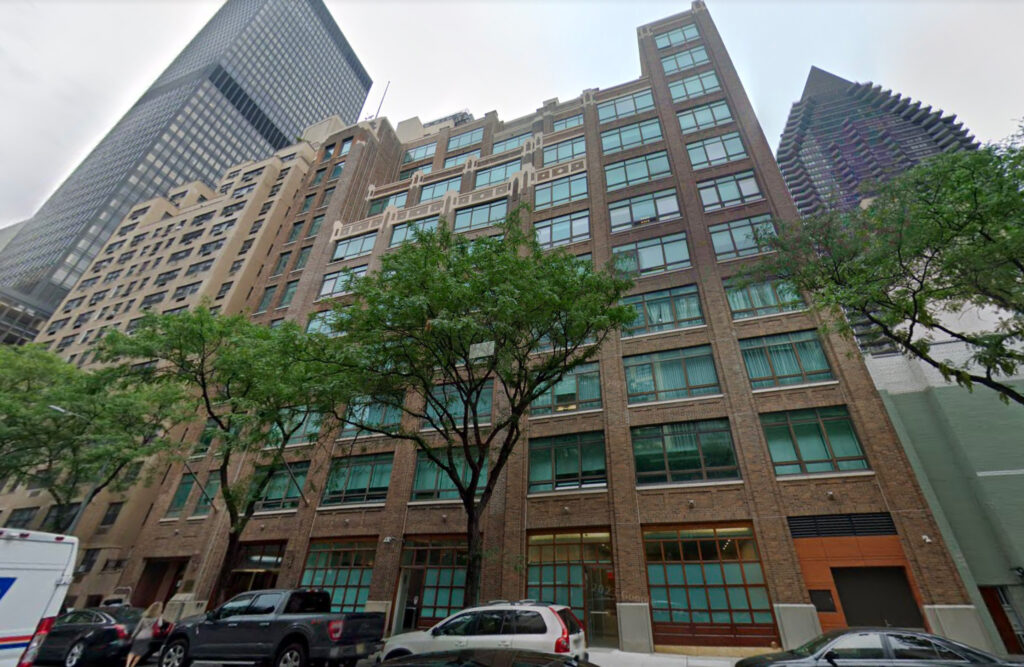
The foreign minister, Margus Tsahkna, said in a statement – a response to the numerous letters protesting against the closure of the consulates – that “Estonia will continue active cultural and economic diplomacy towards the US, and also consular activities. To offer consular services in New York, the current … location – that is located at the same space as our mission at the UN – will remain.”
But the question is, if there is going to be a consul in New York City – at least in some capacity – then why close the historic consulate in the first place? That is a question that remains unanswered.
The cost of the consulate in San Francisco is €775,993 in 2023. Closing that consulate – and leaving all West Coast Estonians without a consular representation for 3,000 miles – will save the country €475,993 – as €300,000 of those savings are already allocated to create new and additional positions in DC. The foreign ministry has previously stated that closing both consulates and adding two new diplomats to DC will achieve a cost savings of more €700,000. However, anyone with a simple calculator can see that closing only the San Francisco consulate and leaving the historic New York consulate intact would achieve the same, if not more savings.

DC is cheaper than NYC
“The finance department’s current calculation is that this sum will cover two additional positions in Washington. An important factor is that renting costs in DC are significantly cheaper than in NYC,” Tamm told Estonian World.
“On average, one diplomat costs about €120,000 a year – including all expenses, a spouse and at least one child.”
However, no matter how many questions one can throw at the foreign ministry, there still isn’t a clear answer as to why the historic consular entity – the Estonian consulate general in New York City – has to be closed, especially if the country is planning to continue offering consular services in the Big Apple – not to mention the very serious question of how the optics of Estonia’s relationship with its most important security partner are being handled by those in power.
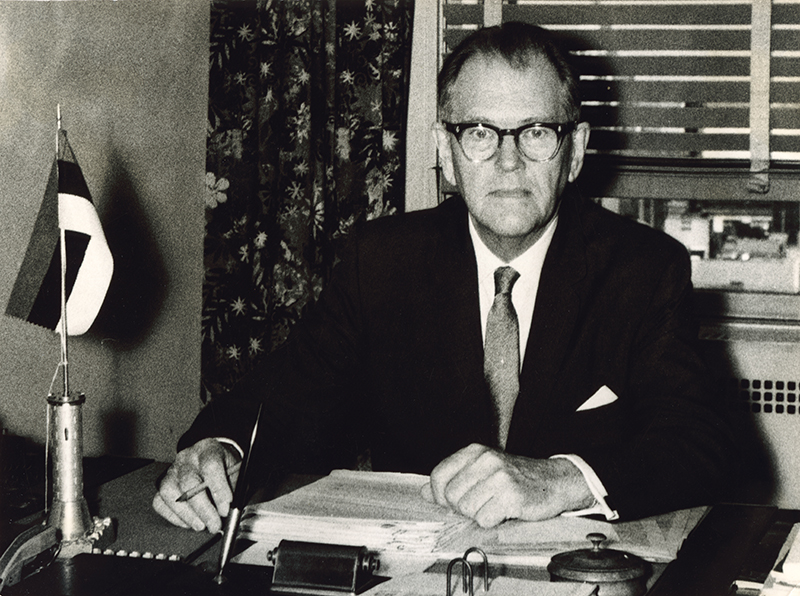
There’s also the matter that the New York City consulate is providing significantly more than just consular services, as it hosts both the seat of Enterprise Estonia and a position from the Estonian culture ministry – both of which serve to elevate Estonia’s visibility at a crucial point in history.
According to Tamm, the discussion on where to formally register the Enterprise Estonia advisors will be held in the future, but they will probably be added to the staff of the embassy in DC. He also pointed out that the Enterprise Estonia representative in San Francisco didn’t use the consulate’s space for work, and the representative in New York City can continue working in New York, in the space the Estonian UN mission already owns.
Read more:
Estonia to close consulates in New York City and San Francisco
Sten Hankewitz: By closing the NYC consulate, Estonia is eliminating its own history
Estonians in the US shocked over consulate closure
Renee Meriste: Estonia should open rather than close consulates in the US
Estonians in the US appeal against the NY consulate closure
Estonians in the West Coast protest against the SF consulate closure

